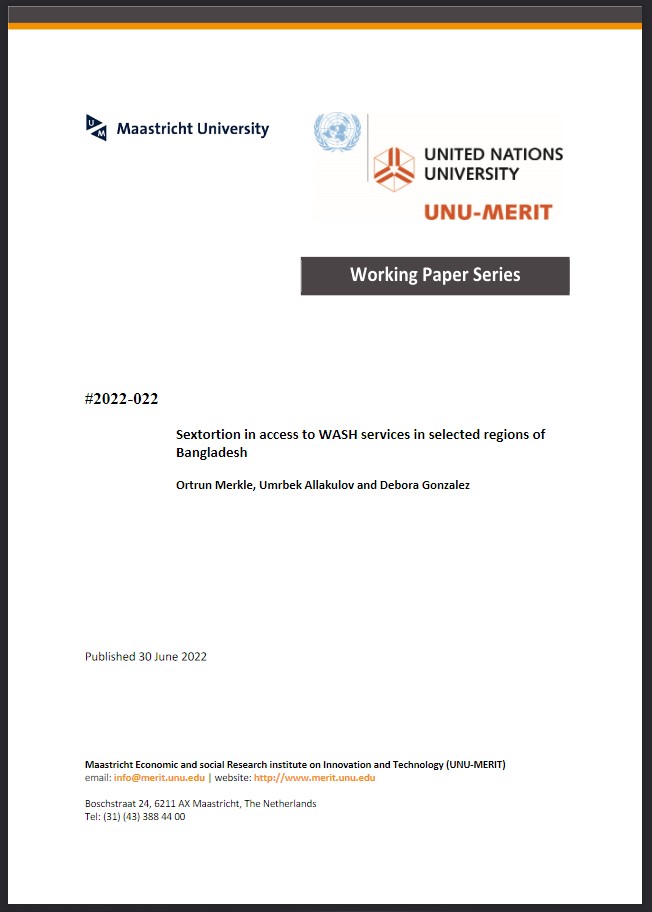Published
Reports

Report of Integrity Management Toolbox for Small Water Supply System (IMT-SWSS) Workshop
Water is an essential resource for sustainable development. It is essential for eradicating poverty, securing food and energy for a rapidly growing population, and maintaining life-sustaining ecosystems for future generations. In spite of some commendable progress, the water sector in Bangladesh is still facing multifaceted challenges with water shortage and quality of water. Reduced flow of trans boundary river water, over-extraction of groundwater and inefficient irrigation practices are the main reasons for the shortage of water, while rapid population growth and climate change impacts are already present as critical concerns. Salinity intrusion, arsenic contamination, poor management of fecal sludge and industrial waste, and excessive use of agrochemicals are the main reasons for water pollution in Bangladesh. The National Integrity Strategy (NIS) along with some other regulatory instruments of the GoB have widened the scope for promotion of integrity issues in management of water resources in Bangladesh. DWASA, CWASA, RWASA & KWASA Bangladesh is working within City Corporation to establish integrity management tools. In continuation of this, with the financial & technical support of Water Integrity Network, DASCO Foundation is conducting the implementation of integrity management tools (IMT-SWSS) in the field of rural areas in Gogagari Upazila. Have not sufficient skill of the committee. Lack of coordination & communication with various stakeholders, users, LGI etc. IMT activities will be implemented through coordination of GOs, NGOs and WRMC (Water Resource Management Committee). Have organized two workshops for fruitful IMT-SWSS activity at the field level of two scheme areas.
Preview
Strengthening WASH Integrity: A Community Empowerment Approach in Khulna City
Access to safe water, sanitation, and hygiene (WASH) remains a critical challenge in informal settlements of Khulna, Bangladesh, where governance gaps, institutional fragmentation, and socio-political marginalization exacerbate service inequities. This study assesses integrity deficiencies in WASH service delivery using the TAPA (Transparency, Accountability, Participation, and Anti-Corruption) framework, applying the Analytic Hierarchy Process (AHP) to prioritize integrity issues based on community and stakeholder inputs. Findings reveal that transparency (46.6%) is the most critical factor, followed by accountability (27.7%), participation (16.1%), and anti-corruption (9.6%), reflecting structural barriers to equitable service provision. Empirical data from Montu Kaloni and Nurani Mahalla highlight severe WASH challenges, including poor water quality, non-functional infrastructure, unregulated submersible pump usage, and inadequate sludge management. Integrity deficiencies are 2.32 times higher in Montu Kaloni, where accountability gaps dominate (69%), while Nurani Mahalla faces transparency and participation deficits due to weak KWASA engagement and lack of local representation. Key issues include political interference in service allocation, conflicts between utility providers, and financial burdens from third-party water vendors. The study underscores the need for legally enforceable WASH policies, community-centric accountability mechanisms, and enhanced transparency in utility operations to mitigate integrity risks. Recommendations include decentralized grievance redressal systems, participatory water management, and anti-corruption measures in infrastructure projects to ensure equitable WASH access in informal urban settlements.
Preview
Towards A Just and Prosperous Society
Support for Enhancing Accountability in Water and Sanitation Sector to address risks of WASH Project. This Project has been started since January 2024 with the support of German Based Water Integrity Network (WIN).
Preview
Sextortion in access to WASH services in selected regions of Bangladesh
This paper investigates the incidence and risk factors associated with sextortion in accessing water, sanitation, and hygiene (WASH) services by women in selected regions of Bangladesh. Sextortion is defined as “the abuse of power to obtain a sexual favor” (IAWJ, 2012, p.9) and takes place at the intersection of corruption and sexual violence. The paper analyses original data from a standardized survey, alongside key informant interviews and focus group discussions collected in 2021 in four areas of Bangladesh.
Preview
Report On Public Hearing Session
A public hearing session was held on 26 June, 2022 at NGO Forum Regional Training Center, Rajshahi under the integrity Management Project of NGO Forum for Public Health. RWASA, Water Integrity Network (WIN) and NGO Forum for Public Health jointly organized the session that discussed and devised ways and means on how to ensure an effective integrity management in Rajshahi WASA
Preview
Water Integrity Global Outlook 2021 (Summary)
The Water Integrity Global Outlook (WIGO) 2021 is published by the Water Integrity Network Association e.V (WIN) and is licensed under a Creative Commons Attribution-NonCommercial ShareAlike 4.0 International (CC BY-NC-SA 4.0). WIN encourages printing or copying the information contained herein for personal and non commercial use with proper acknowledgement of WIN and partners. Users are restricted from reselling, redistributing or creating derivative works for commercial purposes without the express written consent of WIN
Preview
Water Integrity Global Outlook 2021 (Full Version)
The Water Integrity Global Outlook (WIGO) 2021 is published by the Water Integrity Network Association e.V (WIN) and is licensed under a Creative Commons Attribution-NonCommercial ShareAlike 4.0 International (CC BY-NC-SA 4.0). WIN encourages printing or copying the information contained herein for personal and non commercial use with proper acknowledgement of WIN and partners. Users are restricted from reselling, redistributing or creating derivative works for commercial purposes without the express written consent of WIN
Preview
Practicing Integrity Management
The Khulna Water Supply and Sewerage Authority (KWASA) launched an Integrity Management process in 2015 with the support of WIN, BAWIN and cewas. This report documents KWASA’s experience as a public sector utility and examines how integrity management is contributing to improved performance and strengthened integrity. The utility has generated change not only within the company but also among consumers and civil society by building an awareness campaign and establishing interactive sessions bringing together KWASA staff members and customers.
Preview
Country Baseline Assessment - Water Sector Integrity in Bangladesh
This long due work on water integrity of Bangladesh is carried out under the auspices of BAWIN aiming to contribute in ensuring more improved water related service delivery processes for the people. The scope of the work includes identifying the disarray in water resources planning and development, inefficiency in legislative framework and institutional makeup, gaps in water administration and governance. Identifying these gaps, will help agencies to design and deliver actions to guarantee and foster a corruption free, transparent and accountable water services delivery process.
Preview
IM Workshop RWASA
Follow an integrated approach to improve integrity within RWASA. Establish a baseline on the status of integrity, facilitate improvements and validate progress to ensure effective and efficient use of investments into water utilities. Show how management of utilities can benefit by systematically integrating IM management from a business point of view
Preview
World Water Day - Role of Integrity in Valuing Water
Water is a scarce resources which must be protected. Around 700 million people in 43 countries suffer today due to water scarcity. By 2025, 1.8 billion people will be living in regions with absolute water scarcity. Two-thirds of the world could be living under water stressed conditions by 2050. The 98% of the Earth is covered with salt water, the remaining 2% is fresh water in which 68% is unusable, stored in glacier. Globally 2 billion people use water contaminated with faces which leads to diseases like Diarrhea, Cholera, and Typhoid. Two buckets of safe water a day is what a children need to survive, yet 400 children die everyday due to scarcity
Preview
Good Groundwater Management: Justice in Achieving Sustainable Development Goal (SDG)
Water is a scarce resources which must be protected. Around 700 million people in 43 countries suffer today due to water scarcity. By 2025, 1.8 billion people will be living in regions with absolute water scarcity. Two-thirds of the world could be living under water stressed conditions by 2050. The 98% of the Earth is covered with salt water, the remaining 2% is fresh water in which 68% is unusable, stored in glacier.
PreviewMost Viewed:
- WASH
- Sanitation
- Urban Water Management
- Waste Management
- Irrigation
- Climate Change
- Social Accountability
Most Recent:
- Irrigation
- Climate Change
- Social Accountability
- WASH
- Sanitation
- Waste Management